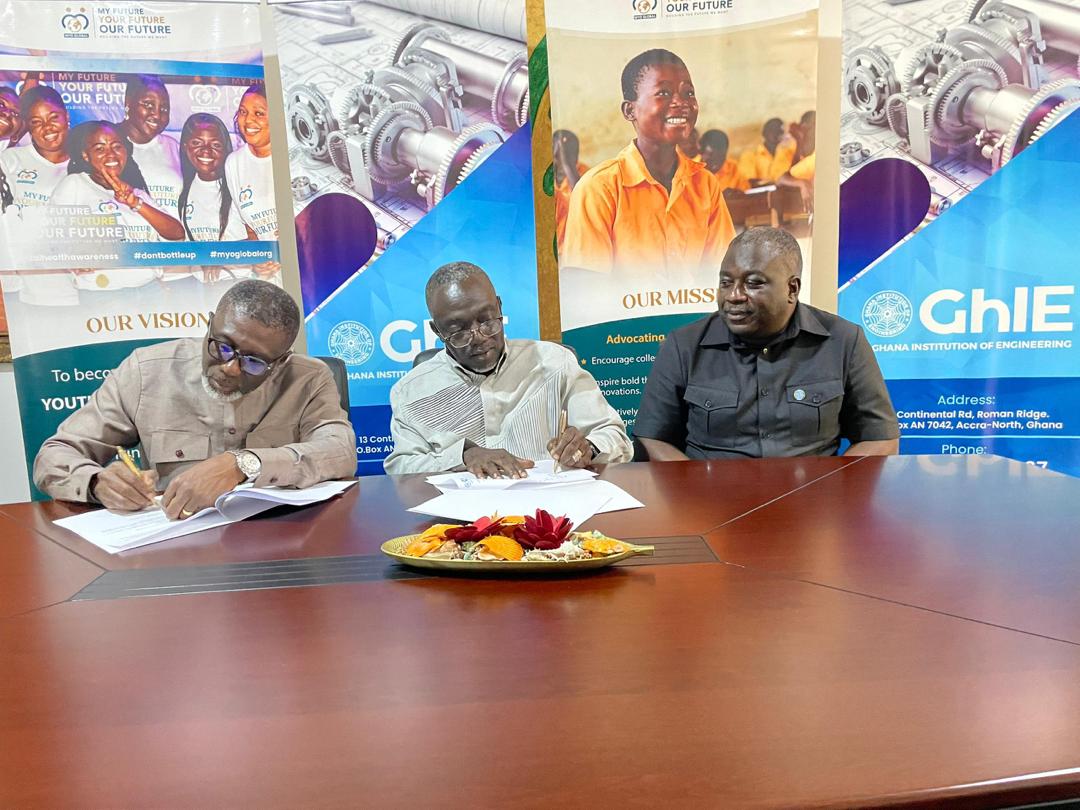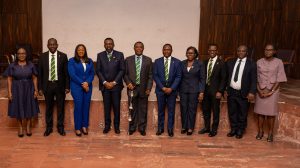
In recent years, the global conversation around nation-building, particularly in emerging and developing economies, has intensified. From policy conferences in Addis Ababa to reform roundtables in Abuja, and across countless media platforms, citizens and leaders alike are calling for meaningful transformation.
These demands, though urgent, often omit one foundational truth: no nation can be sustainably reset without first resetting its collective mindset. Development is not solely an infrastructural challenge. Nor is it only about GDP growth, technological adoption, or attracting foreign direct investment.
These are critical enablers, but they rest on a more fundamental pillar, the mindset of the people, particularly those entrusted with governance, entrepreneurship, and civic leadership. Too often, national transformation is expected to be triggered by elections, new policies, or institutional reforms.
Yet, historical and contemporary examples remind us that enduring progress stems not from declarations or documents, but from shifts in how societies think, behave, and take responsibility, across all levels.
Mindset as the starting point for sustainable transformation
Mindset is the intangible infrastructure upon which every physical and policy intervention depends. Without alignment at the cognitive and cultural level, even the most well-intentioned reforms risk stalling. Mindset shapes how people interpret opportunity, how they approach obstacles, and how they define their role in society’s future.
Take, for example, South Korea. Its transformation from a war-torn nation in the 1950s to a technology-driven economy today did not begin with Samsung or Hyundai. It began with a deliberate national narrative shift from survivalist dependency to industrial ambition.
This cultural reorientation, backed by a disciplined bureaucracy and meritocratic governance, laid the psychological foundation for future industrial policies to take root. In contrast, when mindset change is neglected, even the best-laid plans flounder. Reforms are viewed with suspicion. Merit is substituted with patronage. And policies aimed at collective gain are sometimes undermined by short-term self-interest.
For many African nations, the challenge is not a lack of policy ideas or resources. It is that the old habits, ranging from blame culture to entitlement thinking, continue to dominate national consciousness. These habits are rarely malicious. More often, they are deeply ingrained legacies of colonial administration, elite capture, and post-independence socio-political trauma. But they persist nonetheless and hinder the very transformation we collectively desire.
Why short-term thinking undermines long-term potential
One of the most critical areas where mindset reform is needed is in our expectations around time. Too often, we expect national transformation to occur within a four- or five-year electoral cycle. But a national reset is a generational undertaking. Singapore under Lee Kuan Yew did not achieve its transformation within a single term. Rwanda’s post-genocide recovery has spanned three decades and continues today. Even Germany’s reunification, backed by vast financial resources and institutional capacity, took decades to harmonise economic, social, and ideological differences between East and West.
Healing wounds, especially national ones, requires time, patience, and policy continuity. Political mandates may come and go, but cultural rewiring and systemic reform demand an uninterrupted national commitment.
Unfortunately, short-termism, fueled by electoral competition and public impatience, frequently compels leaders to pursue visible projects over vital but less visible reforms. Roads, buildings, and stadiums may win votes. But unless accompanied by deeper changes in public sector efficiency, educational quality, and civic ethics, such investments risk becoming unsustainable symbols of momentary progress.
The role of citizens – a shared responsibility
There is a prevailing but unproductive narrative across many societies that governments alone are responsible for resetting nations. While governments carry the mandate and machinery for policy implementation, the broader task of transformation cannot succeed without active and responsible citizenry.
This is not mere theory. In Rwanda, for instance, the Umuganda programme institutionalises civic participation by mandating monthly community service across all demographics. From cleaning streets to repairing infrastructure, it reinforces the idea that development is a collective endeavour, not a spectator sport.
Contrast this with contexts where public facilities are vandalised by the very communities they serve, where public sector workers arrive late and leave early without consequence, or where local innovation is undercut by persistent preference for imported alternatives. In such environments, the idea of a national reset remains rhetorical.
To be clear, citizen involvement must go beyond protest and social commentary. It must extend to how we raise our children, treat our professions, honour public space, support local industry, and hold ourselves accountable for our roles in building the society we aspire to live in.
Institutionalising positivity as national strategy
In recent years, positivity has often been mistaken for naivety. But constructive optimism is not an emotional indulgence; it is a developmental imperative. No society has ever developed under the banner of cynicism.
This is not to deny the realities of structural inequality, corruption, or global power imbalances. But focusing exclusively on these realities, without a concurrent belief in one’s national potential, leads to despair and disengagement.
A nation that no longer believes in itself cannot inspire reform, investment, or innovation. Japan rebuilt itself from nuclear devastation, not through bitterness, but through a generational commitment to excellence. South Korea chose vision over victimhood. Estonia, post-USSR, bet on digital citizenship. In each case, optimism was not performative.
It was strategically rooted in action, resilience, and accountability. In Ghana, Nigeria, Kenya, South Africa, and beyond, we must intentionally elevate narratives of capability. We must highlight entrepreneurs building value chains, young people solving community problems, civil servants committed to reform, and public-private collaborations that are genuinely moving the needle.
Resetting requires healing, and healing is slow
National reset also implies national healing. And healing, whether personal or societal, is rarely linear. Societies burdened by historical injustice, post-conflict trauma, and generational inequality require more than policy adjustments. They require a therapeutic process that acknowledges pain, fosters forgiveness, and builds inclusive platforms for progress. But healing cannot happen in the absence of honest introspection.
We must confront uncomfortable truths about the structures we inherited and the choices we’ve made since. The normalisation of shortcuts, the informal codes of corruption, and the glorification of power over purpose must all be re-examined. And that re-examination must occur not just in governance institutions, but in homes, schools, boardrooms, and religious spaces. If we reset everything but the mindset, we have changed nothing.
A multi-sectoral framework for mindset reset
So how do we move from rhetoric to reality? There are five interconnected pathways that, if pursued deliberately and collectively, can institutionalise mindset reset as a national strategy:
- Mainstreaming mindset education – Revise school curricula to embed civic responsibility, ethics, problem-solving, and nation-building from the earliest years of education. Encourage critical thinking alongside core subjects.
- Performance-based public sector culture – Move away from appointment by affiliation and toward competence-based governance. Introduce transparent KPIs, quarterly performance dashboards, and consequence-based management.
- Public-private partnerships for mindset transformation – Encourage companies to invest in civic education and behavioural change campaigns. Just as private firms supported hygiene education during public health campaigns, they can champion productivity, patriotism, and ethical leadership initiatives.
- Media as a mindset multiplier – Encourage content creators to highlight stories of innovation, responsibility, and resilience. Reward journalism that promotes solutions and civic inspiration—not only crisis and controversy.
- Decentralised mindset movements – Promote regional and district-level mindset reset campaigns that reflect local contexts. National transformation is strengthened when community development becomes a shared identity.
A note of caution – Beware the temptation of shortcuts
In the pursuit of transformation, the most dangerous illusion is the promise of instant change. But nation-building is not a sprint; it is a marathon of marathons. It is an intergenerational commitment, where each leadership class builds a floor for the next to stand on.
Those who expect dramatic change within 100-day action plans or single-term promises will inevitably face disillusionment. Real reform is rarely visible overnight. In fact, the most transformative policies, those that strengthen institutions, shift culture, and elevate thinking, often take time to bear fruit. But time is not the enemy. Time, used wisely and intentionally, is the only true shortcut that works.
Concluding thoughts – The mind must rise first
As Africa, and indeed much of the developing world, looks to industrialise, digitise, and unify under frameworks such as AfCFTA and Agenda 2063, one truth must remain central: the mind must rise before the nation can. We must invest as aggressively in a mindset shift as we do in infrastructure and digitisation.
We must measure not only economic growth but also the evolution of national consciousness. And we must do so with humility, consistency, and collective ownership. In the final analysis, resetting a nation is not only the work of government or the responsibility of a few. It is a collective awakening. One that begins quietly but powerfully within each mind. And that, as inconvenient as it may be, is the most transformative truth of all.
>>>the writer is a globally celebrated thought leader, Chartered Director, industrial engineer, supply chain management expert, and social entrepreneur known for his transformative contributions to industrialisation, procurement, and strategic sourcing in developing nations.
As Africa’s first Professor Extraordinaire for Supply Chain Governance and Industrialization, he has advised governments, businesses, and policymakers, driving sustainability and growth. During his tenure as Chairman of the Minerals Income Investment Fund (MIIF) and Labadi Beach Hotel, he led these institutions to global recognition for innovation and operational excellence. He is also the past chairman of the Public Procurement Authority.
A prolific author of over 90 publications, he is the creator of NyansaKasa (Words of Wisdom), a thought-provoking platform with over one million daily readers. Through his visionary leadership, Professor Boateng continues to inspire ethical governance, innovation, and youth empowerment, driving Africa toward a sustainable and inclusive future.
The post The Inconvenient Truth with Prof. Douglas BOATENG: A flawed mindset bankrupts even the richest nation appeared first on The Business & Financial Times.
Read Full Story



















Facebook
Twitter
Pinterest
Instagram
Google+
YouTube
LinkedIn
RSS